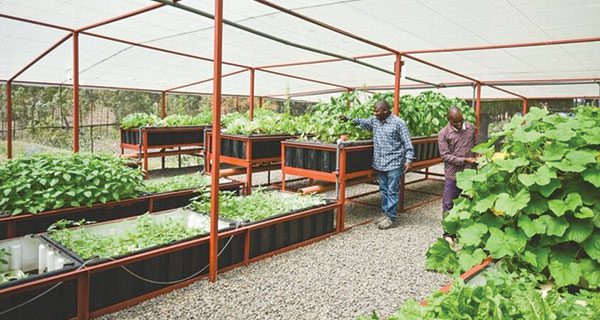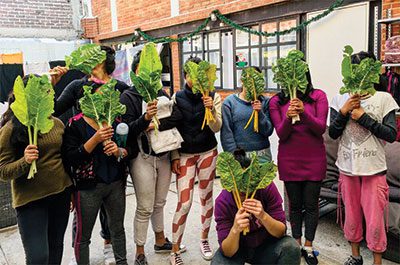
It all started when Fly Fishing Collaborative’s (FFC) founder asked a simple question: “What do I have in my hand that can do good in the world?” At the time, it was a fly rod, and that question sparked a movement.
Today, FFC builds sustainable aquaponics farms to combat poverty and prevent human trafficking in 11 countries. These closed-loop systems—where fish waste fertilizes vegetables—create year-round food and income with minimal land and water. From remote villages to urban rooftops, they offer practical solutions in places where food scarcity fuels exploitation.
Some farms support safe homes for trafficking survivors. Others are run by orphanages. Many do both. Each farm costs $50,000 to $75,000 to build, depending on location and materials. Some reduce food costs. Others generate revenue through local sales. Often, they do both—producing up to $125,000 in annual value. The goal: long-term, self-sustaining impact. As the old proverb says: “Give a man a fish and you feed him for a day. Teach a man to fish and you feed him for a lifetime.”
But it’s not just about farming—it’s about prevention. UNICEF reports food insecurity is one of the top drivers of human trafficking worldwide. That’s why FFC goes upstream—not just globally, but locally. In the U.S., 60% of human trafficking victims have spent time in the foster care system. That statistic is heartbreaking, but it’s also a roadmap for prevention. FFC responds by hosting one-day fly fishing outings and three-day trauma-informed therapy camps for foster youth. These experiences offer more than just a day on the water—they create space for healing, connection, and trust.

From humble roots in Portland, Oregon, FFC now includes staff in Colorado, Florida, and Italy, with ambassadors across the U.S. and Canada. FFC only partners with local organizations already doing good work—empowering leaders who know their communities best.
Recently, ambassadors Ryan Boggs (Trout Unlimited) and Steve Deblois (Brookside Guides) connected with the Angler & Coastal Angler Magazine team at the Maggie Valley Fly Fishing Festival in North Carolina.
FFC’s ambassador network includes trout guides in the Appalachians, steelhead fanatics in the Pacific Northwest, and flats guides in the Gulf and Tampa Bay. They’re always looking for others—especially guides—who want to host fishing trips that matter.
This fall, FFC and Fly Fusion Magazine will launch the Fish Well. Do Good. Trout Tour—a film series screening in fly shops, theaters, and select Orvis stores across the country. FFC gives special thanks to early tour sponsors Korkers, Orvis, and NRS for supporting the cause.
Launching January 2026: fishwelldogood.com

Go to fishwelldogood.com and join the movement. To learn more about the broader work, visit flyfishingcollaborative.org.
Fish Well. Do Good.
#FishWellDoGood